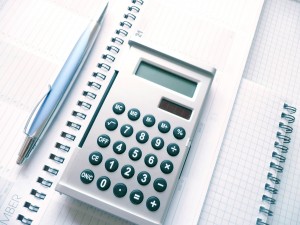
Bookkeeping Basics
Bookkeeping is one area of business that inspires dread in the hearts of many business owners, large and small. Unfortunately, it is a legal requirement to keep financial records going back six years, with potential fines from HMRC if you fail to comply with any record requests.
Keeping accurate records also presents the additional benefit of vital information on the state of your profitability. This means that keeping up-to-date accounts is something that small-business owners can simply not afford to ignore.
These Bookkeeping Basics should help you to get started, and they apply whether you’re running a limited company or work as a sole trader.
Consider Hiring a Professional Accountant
Your finances are one of the most important areas of your life, so don’t unnecessarily take on the responsibility of managing them. A decent accountant should save you more money than they themselves charge – that’s their job, after all.
Bookkeeping, on the other hand, is something that you may be able to handle alone, but if you find yourself struggling to keep your paperwork up to date, you could also enlist a bookkeeper to update your records on a monthly basis, reducing your expenditure on accountancy.
Collect Receipts for Every Purchase
The longer your business operates, the greater the chances of a tax or VAT investigation. But as long as you enlist the skills of a professional accountant and have all of your paperwork in order, you have nothing to fear. Get into the habit of keeping physical records of every business-related transaction you make. If you order something online, print off the invoice, as it’s easier to hold on to a physical copy than to trawl through old emails a few years later.
Maintain Accurate Financial Records
If your business or personal affairs are large enough to merit a professional accountant, ask their advice on the types of records appropriate for your dealings. As a rule of thumb, however, three kinds of records should be kept.
1. Sales Invoice Ledger
These detail sales made by your business. Make sure to store them in chronological order, and keep unpaid invoices at the top of the pile to help yourself manage your credit control.
2. Purchase Invoice Ledger
This file tracks outgoings. Collect and file your purchase receipts in chronological order. It’s also worth noting down on the back of each one how and when you paid it. With cash? A cheque? A bank transfer? Focussing on details will reduce your expenditure on accountants.
3. Cash Book
Lastly, this lists the payments entering and leaving your bank account. Ensuring that this is kept up to date allows you to use the information to project trends and draw up forecasts after a few months.
Separate Your Personal and Business Accounts
If you are a sole trader, you draw your wages from the business, but it’s still important to keep your accounts clean by maintaining separate accounts for business and personal affairs. Pay your wages into your personal account to keep your accounts clean.
On the other hand, if you are the director of a limited company, the business’s money isn’t yours to dip into as you feel like. Company money must only be spent on legitimate business expenses. Personal purchases must be made with your own wages.
Business Accounting Software Packages
Lastly, in order to keep your accounts and bookkeeping organised, it’s worth considering some of the easy to use finance accounts packages such as: Xero, FreeAgent and Sage One. With these excellent online support tools, you will be able to efficiently manage your business and your clients with structure and ease.
Allsquare offers a range of services including support and guidance with accountancy and bookkeeping . For more information, call Allsquare today on 0131 343 1510.
